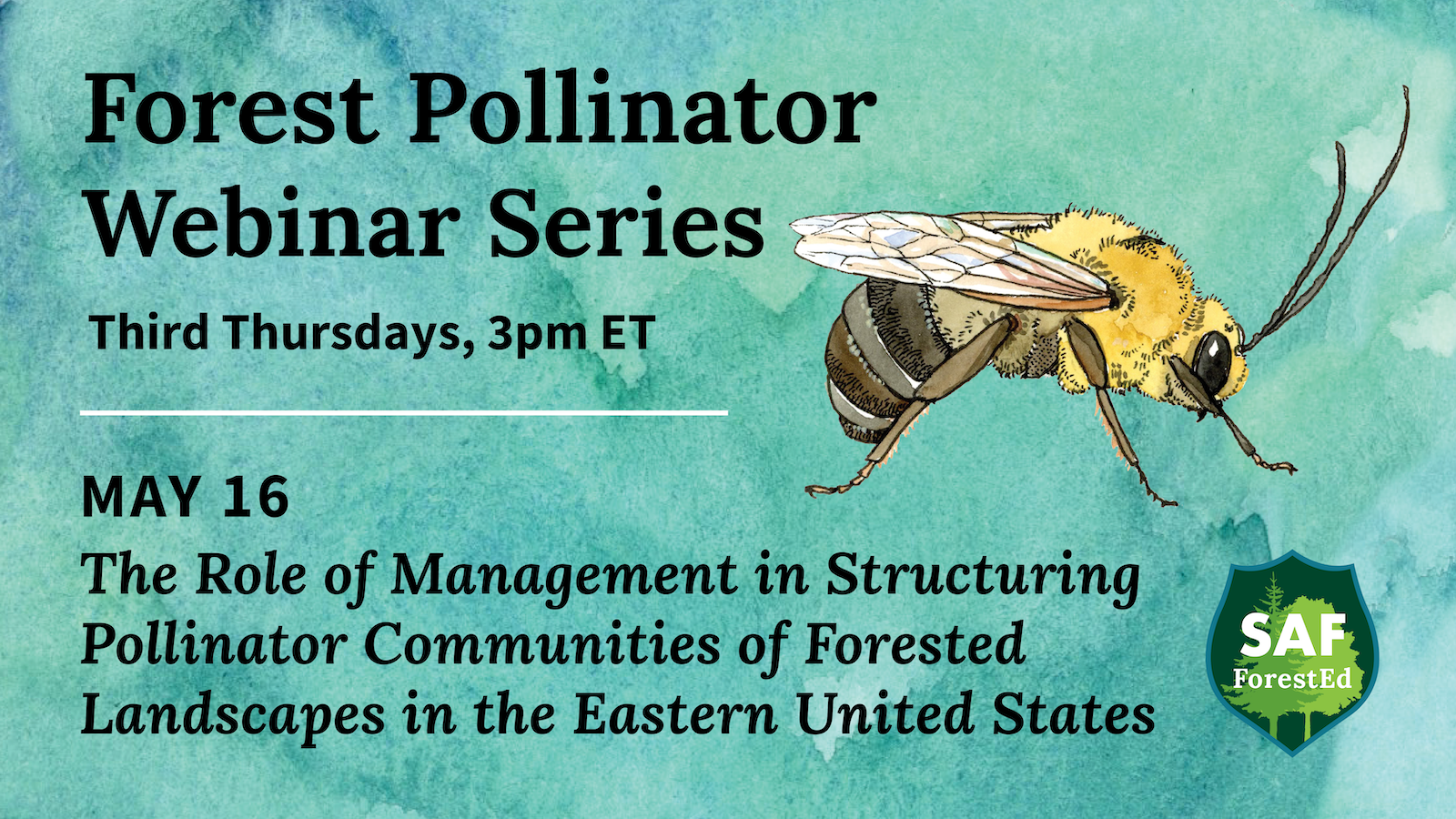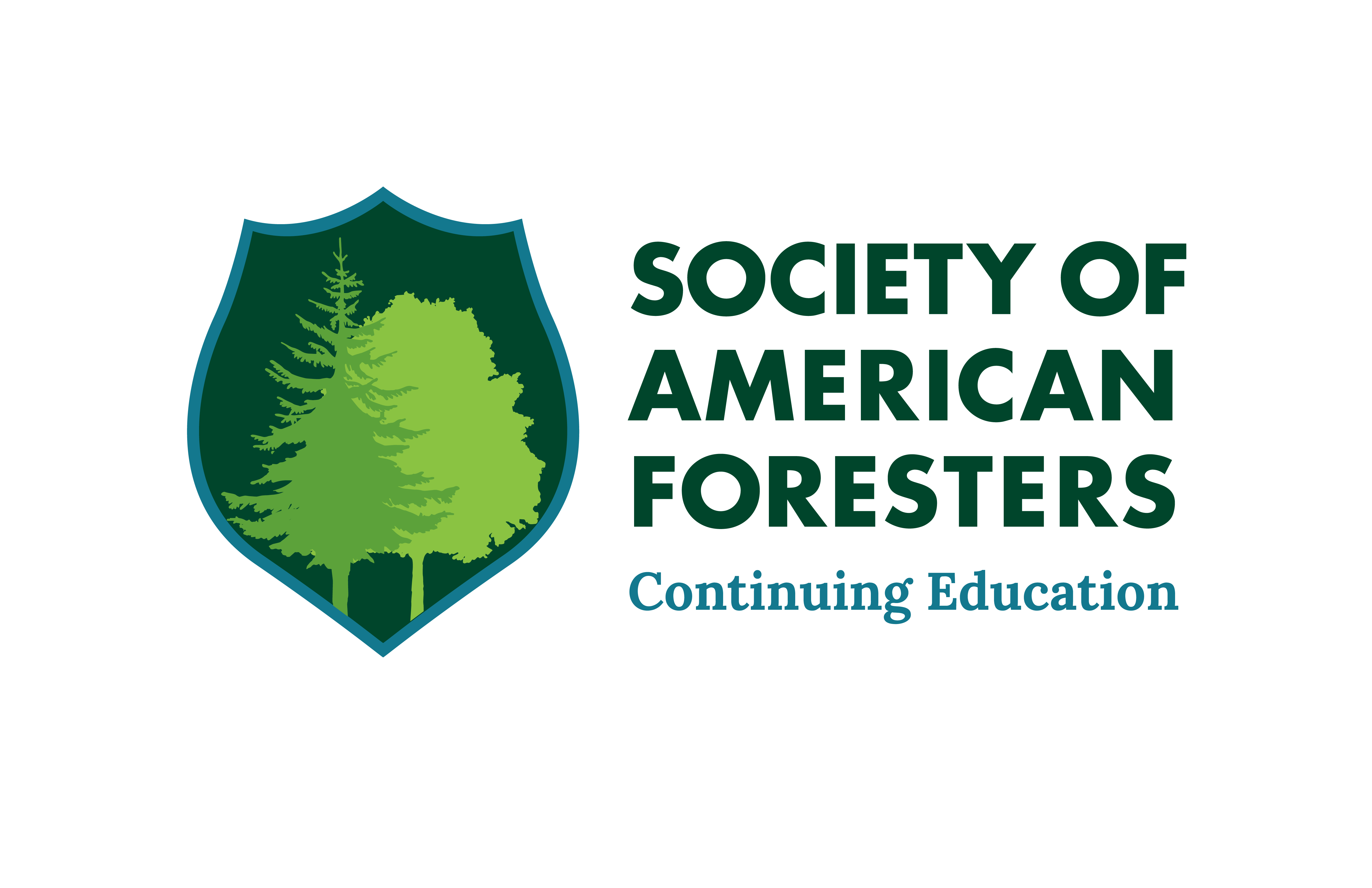SAF ForestEd
Recent and Future Trends in Water Resources from the RPA Assessment
-
You must log in to register
- Non-member - Free!
- Member - Free!


Webinar information
Human activities and natural processes have significantly altered the water resources of the United States, and continual changes are expected. This webinar will review results from the Water Resources Chapter of the 2020 RPA Assessment, summarizing recent trends and future projections of freshwater use and supply, as well as likelihood of water shortages to 2070 based on RPA scenarios and how those shortages impact communities throughout the United States. To highlight the value of the RPA approaches, we will then hear how The Pew Charitable Trusts uses information and outputs like those from the RPA project to better understand how their conservation work may affect local communities, what that means for how they engage in partnerships with those communities, and how that may translate to project objectives and metrics for success.
Is this technical session for you?
This webinar is intended for land managers, scientists, and policy makers—anyone interested in understanding how water resources in the U.S. have been changing over time and how they are likely to continue to change in the future. Anyone with responsibility for evaluating or managing water resources would benefit by learning more about ongoing trends and potential futures.
Registration
1. Click REGISTER to the right of the technical session recording title. Be sure to log in with your SAF account username and password.
2. After checking out, this webinar will be available on your MY DASHBOARD page here on ForestEd.
For group registrations or registering someone other than yourself please contact membership@safnet.org or 202-938-3910.
Pricing
This webinar is FREE ($0) for all viewers.
Members and non-members still need to register to gain access to this learning product. To register for a free SAF account, click the 'Log In' button in the top right corner, then click 'Create a new account'.
Join SAF TODAY to take advantage of the growing member benefits, including course savings, free community of interest webinars, and more!
Webinar Access
The webinar was live on Thursday, August 28, 2025 at 2:00 PM ET. The Zoom Webinar platform will be used for the presentation. Be sure to connect to the webinar using a device approved to access Zoom.
Its archived recording will be available through September 30, 2026.
Access this learning product within the Contents tab (to the right of the Overview information).
Webinar duration
This webinar is 1 hour.
Learning objectives
Upon successful completion of viewing this recording, you will be able to:
1. Explain how water resources have changed over recent decades.
2. Describe how water resources are projected to continue to change in the future.
3. Identify ways in which projections of water resources impact local communities and how they can be used in policy or management.
Rubric
Successful completion of this learning product is measured by viewing the entire webinar and completing the evaluation.
Evaluation
Participant feedback is appreciated to help us continually improve ForestEd offerings for future programming. Evaluations must be completed to receive CFEs.
CFEs
Upon successful completion of this learning product, you will earn 1.0 CFEs in Category 1. CFEs will automatically be added to your CFE record located on www.eforester.org by the end of the day (11:59 pm ET).
Certificate
Upon successful completion of the webinar and filling out its evaluation, participants may download and print a certificate verifying completion of this learning product and earning SAF CFEs.
Return to technical session
Once you are registered for the recording, access this technical session recording within your MY DASHBOARD. You can return to download your certificate by accessing the technical session information within the general listing of YOUR DASHBOARD through September 30, 2026. Registrants will be notified if that timeline is extended.
Need Help?
For ForestEd questions, visit FAQs, email ForestEdSupport@safnet.org, or check out the registration quick tips in the Handouts tab. For technical assistance and questions about this technical session recording, email ForestEdSupport@safnet.org.
Refund
This is a non-refundable item. Please view FAQs for additional information.
Travis Warziniack
Research Economist
USDA Forest Service Rocky Mountain Research Station
Travis Warziniack, Ph.D., is a research economist with the USFS Rocky Mountain Research Station. Dr. Warziniack’s research focuses on the valuation of ecosystem services, with an emphasis on water resources, climate change, and nature’s role in creating more equitable and sustainable economies. He serves as the water specialist for the Resource Planning Act (RPA) Assessment and the forest lead for the U.S. natural capital accounts. Prior to joining the US Forest Service in 2012, Dr. Warziniack was a professor of environmental economics at the University of Heidelberg, Germany. He received his PhD from the University of Wyoming in 2008, his MS from the University of Texas in 2003, and his BS from Louisiana State University in 1998.
Kira Sullivan-Wiley
Senior Officer
The Pew Charitable Trusts
Kira Sullivan-Wiley, Ph.D., leads Pew’s work related to the impact of its environmental programs on people, with a particular focus on how the Trusts’ conservation work affects human well-being, behavior, and decision-making. This includes supporting Pew’s efforts to understand how large-scale conservation activity might engage with—and support—local communities for their mutual benefit. Before joining Pew, Sullivan-Wiley conducted research at various academic institutions on environmental decisions and behavior. She did this work in collaboration with the American Red Cross, The Nature Conservancy, and other organizations. Sullivan-Wiley holds a bachelor’s degree in ecology and evolutionary biology from the University of Connecticut, a master’s degree in climate science and sustainability from Columbia University, and a doctorate in human-environment geography from Boston University.
Claire O'Dea (Moderator)
Resources Planning Act Assessment National Program Leader
USDA Forest Service Research & Development
Kathy Broughton (Moderator)
Assessment Program Manager
USDA Forest Service Research & Development
Key:
Browser Recommendation
Use Chrome, Firefox, Edge, or Safari.
If experiencing delays logging on, visit the SAF Main Site, sign in on that tab, and then refresh and click "Log In" on this page.
Quick Search
Support
If you need assistance with registration, accessing a ForestEd product you purchased, or other customer service-related issues, please email ForestEdSupport@safnet.org during normal office hours: Monday - Friday, 9:00 am - 5:00 pm ET.
Sponsors
For sponsorship opportunities, contact Victoria Duval at vduval@safnet.org